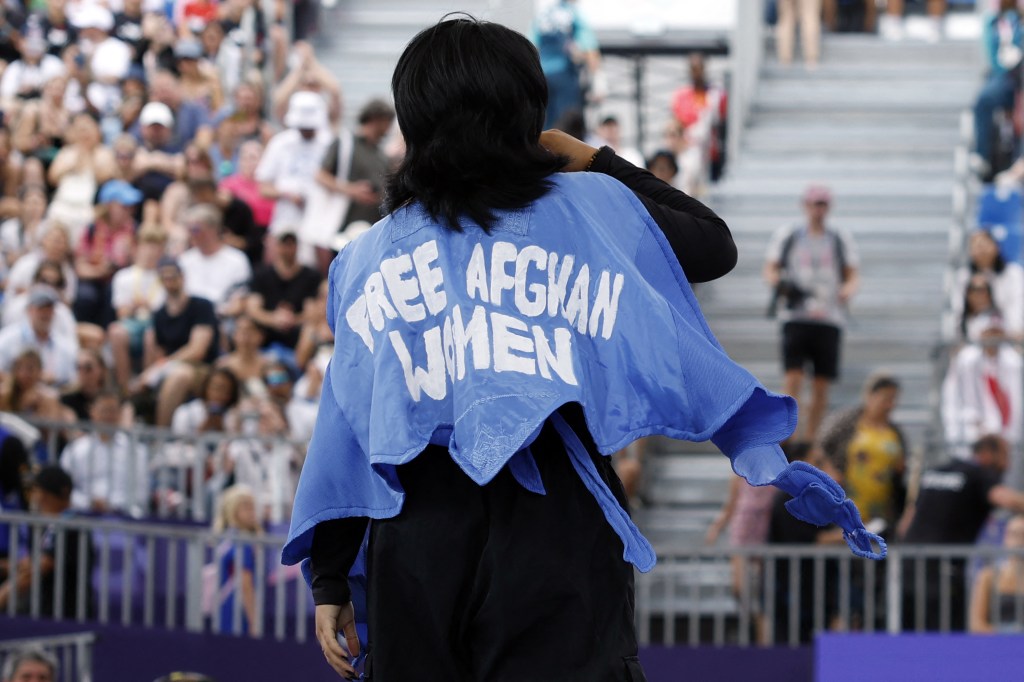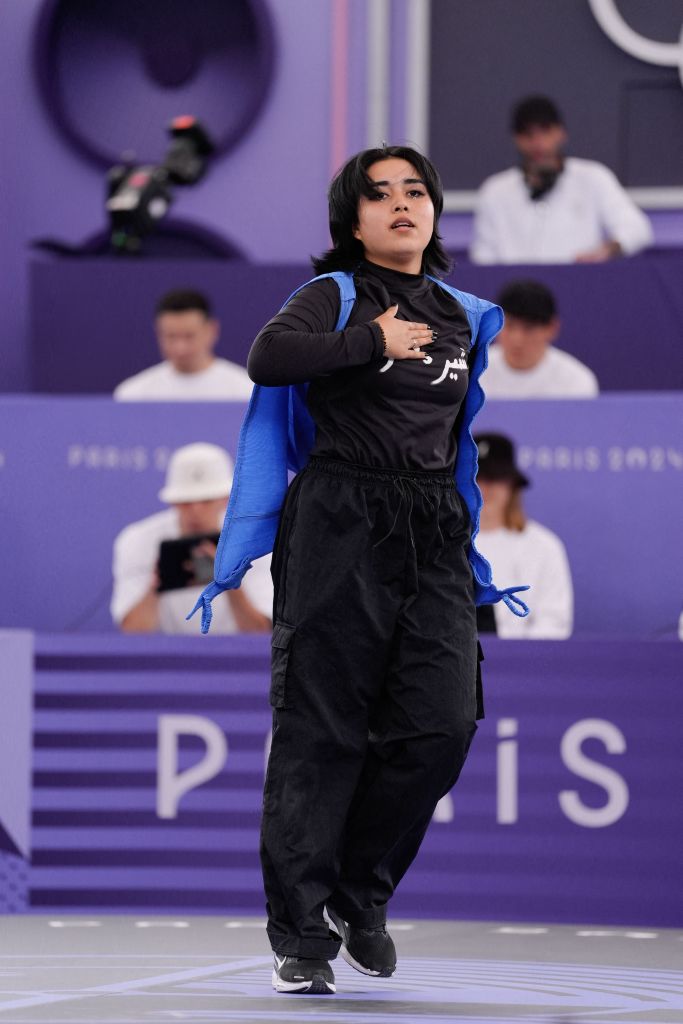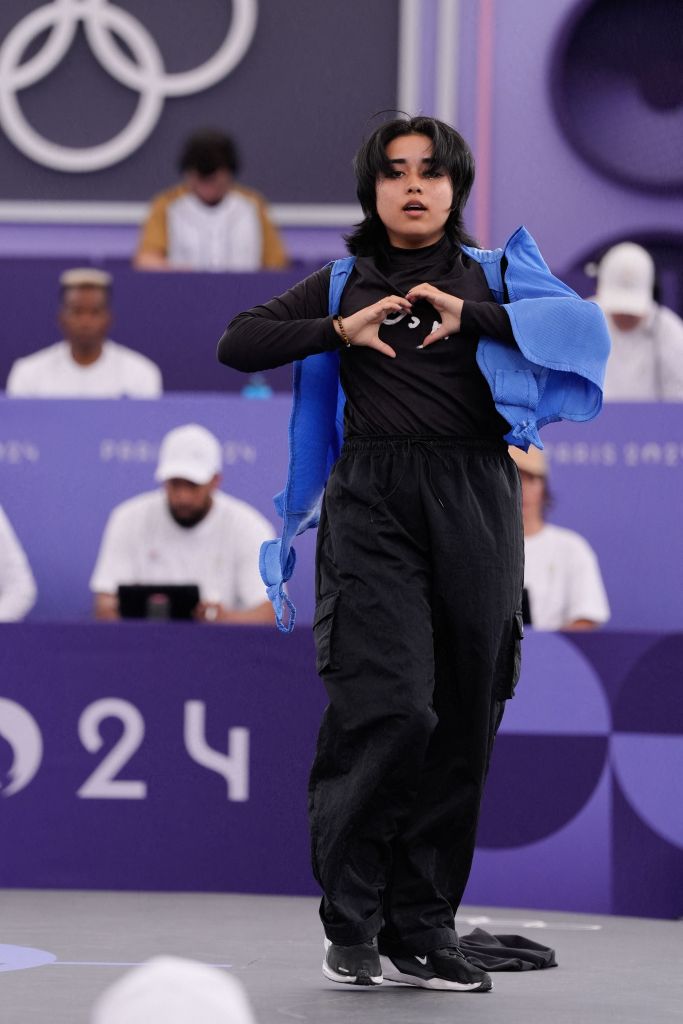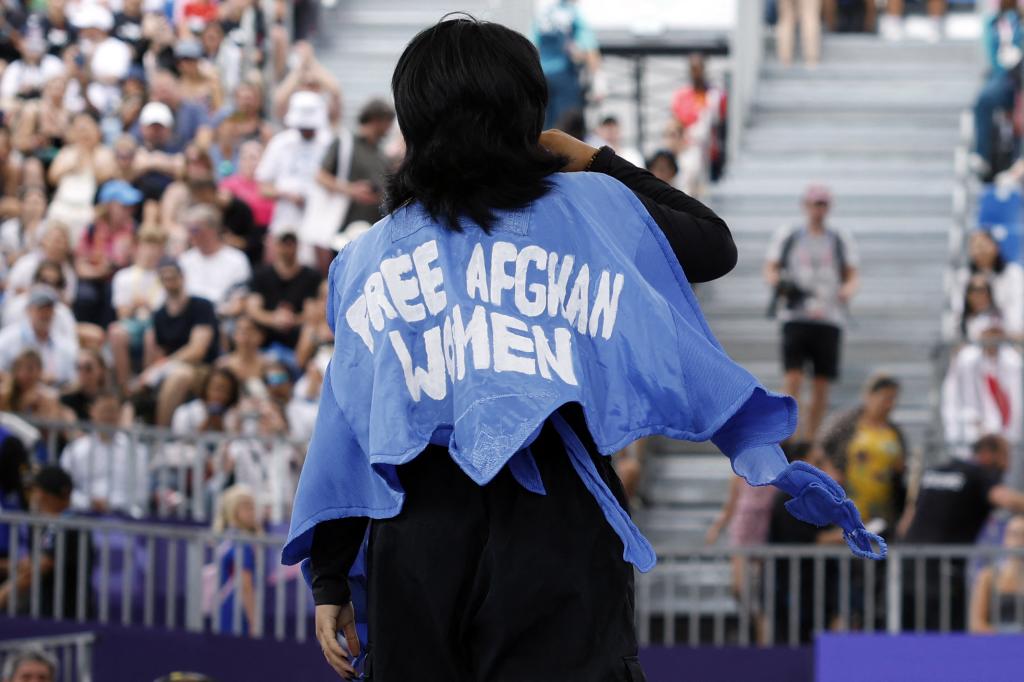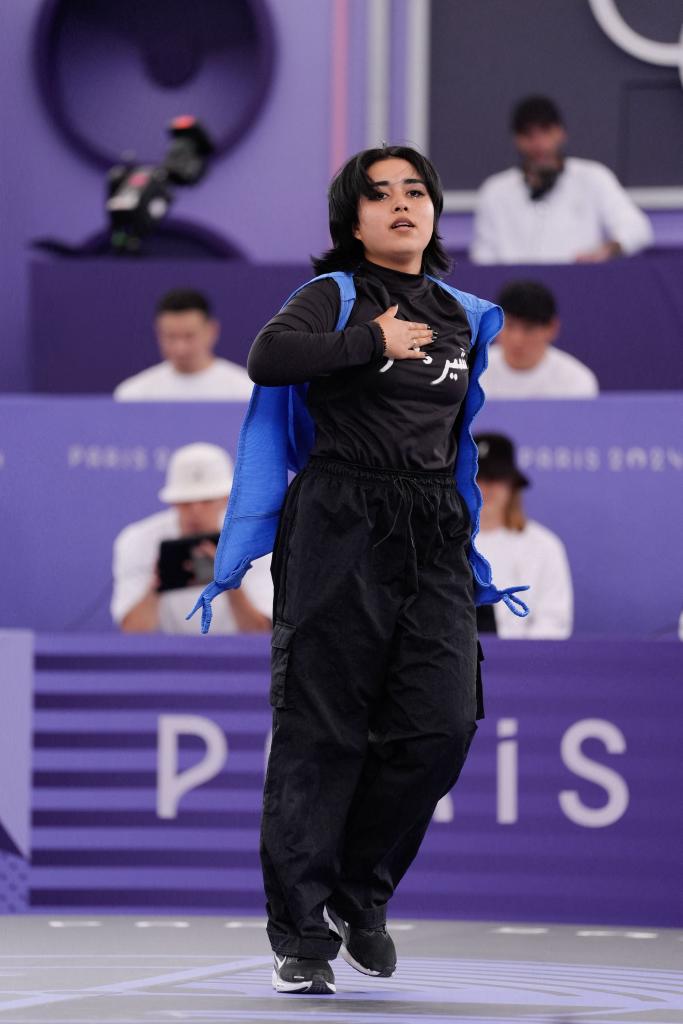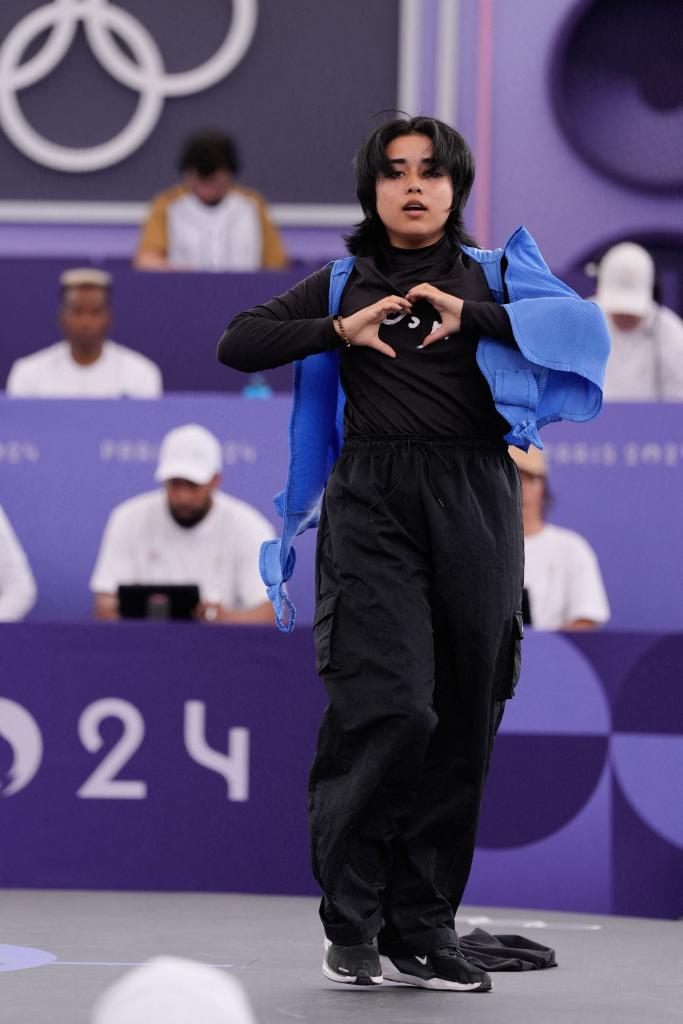Breakdancing athlete Manizha Talash was disqualified from the Olympics after making a demonstration during competition to support the liberation of Afghan women.
Talash fled Afghanistan after the Taliban regained control of the country and was granted asylum in Spain.
She competed in B-Girl breaking in the Paris Olympics on behalf of the Refugee Team, and during her pre-qualifying battle with India Sardjoe on Friday she pulled out a cape that said “Free Afghan women”.
World DanceSport Federation, which governs breaking at the Olympics, issued a statement after the competition saying that Talash “was disqualified for displaying a political slogan on her attire during the Pre-Qualifier battle,” according to the Associated Press.
As Talash, 21, lost her match against Sardjoe, she would not have advanced even if she had not been disqualified.
Rule 50 of the Olympic charter stipulates that “no kind of demonstration or political, religious or racial propaganda is permitted in any Olympic sites, venues or other areas”.
The charter explains why this prohibition exists.
“The focus at the Olympic Games must remain on athletes’ performances, sport and the international unity and harmony that the Olympic Movement seeks to advance. Athletes at the Olympic Games are part of a global community with many different views, lifestyles and values,” the Olympics charter says.
“The mission of the Olympic Games to bring the entire world together can facilitate the understanding of different views, but this can be accomplished only if everybody respects this diversity. It is a fundamental principle that sport is neutral and must be separate from political, religious or any other type of interference. Specifically, the focus for the field of play and related ceremonies must be on celebrating athletes’ performance, and showcasing sport and its values.”
2024 PARIS OLYMPICS
- The final results and medal count from the Paris Games
- Jordan Chiles’ Olympic bronze not returned despite ‘conclusive’ evidence
- Luana Alonso returns to training after Olympics featured abrupt retirement
- Weightlifting medalist Emily Campbell tears into Paris’ Olympic Village
- The Post’s 10 best moments of the 2024 Paris Olympics
Before the Olympics, Talash explained why she left Afghanistan and what she was competing for.
“I didn’t leave Afghanistan because I’m afraid of the Taliban or because I can’t live in Afghanistan,” Talash said, as covered by CNN. “I left because I want to do what I can for the girls in Afghanistan, for my life, my future, for everyone.”
She continued, “All refugees have a very difficult life, but they will go to the Games. So to me, to be part of the team, it means strength … People from my country and also girls would tell me: ‘You need to learn how to cook and clean the house.’”








